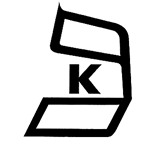Today is the 22nd of Sivan , 5770
Shomea ke’one is an Halakhic principle which says that if we both have an obligation to recite certain prayer or blessing, I can say it out loud, on behalf of us both and you have fulfilled your obligation. For example, we both have the obligation to say the Kiddush, I can say it aloud and by listening to me your obligation is fulfilled.
There are a few conditions that have to be met, however, for this law to be applicable.
1. The one that says the Kiddush has to have in mind that he is reciting the Kiddush on behalf of all those who are listening to it and the ones listening have to consciously intend to fulfill their obligation by listening to the one who recites the Kiddush and of course, at the end, they have to answer :Amen.
2. When you say the Kiddush you fulfill your obligation even if you don’t understand the meaning of the Hebrew words you’re saying. But when you are fulfilling your obligation by listening, according to the Shulchan Arukh, you must understand what has been said.
So, if you are listening to the Kiddush, either you have to whisper word by word while you’re listening or, ideally, you need to learn what the Hebrew words of the Kiddush mean.
For translation and transliteration of the Kiddush see: http://www.ou.org/chagim/shabbat/remember.htm
Hadlakat Nerot 8:04 PM. Shabbat Shalom!!!
Shomea ke’one is an Halakhic principle which says that if we both have an obligation to recite certain prayer or blessing, I can say it out loud, on behalf of us both and you have fulfilled your obligation. For example, we both have the obligation to say the Kiddush, I can say it aloud and by listening to me your obligation is fulfilled.
There are a few conditions that have to be met, however, for this law to be applicable.
1. The one that says the Kiddush has to have in mind that he is reciting the Kiddush on behalf of all those who are listening to it and the ones listening have to consciously intend to fulfill their obligation by listening to the one who recites the Kiddush and of course, at the end, they have to answer :Amen.
2. When you say the Kiddush you fulfill your obligation even if you don’t understand the meaning of the Hebrew words you’re saying. But when you are fulfilling your obligation by listening, according to the Shulchan Arukh, you must understand what has been said.
So, if you are listening to the Kiddush, either you have to whisper word by word while you’re listening or, ideally, you need to learn what the Hebrew words of the Kiddush mean.
For translation and transliteration of the Kiddush see: http://www.ou.org/chagim/shabbat/remember.htm
Hadlakat Nerot 8:04 PM. Shabbat Shalom!!!
